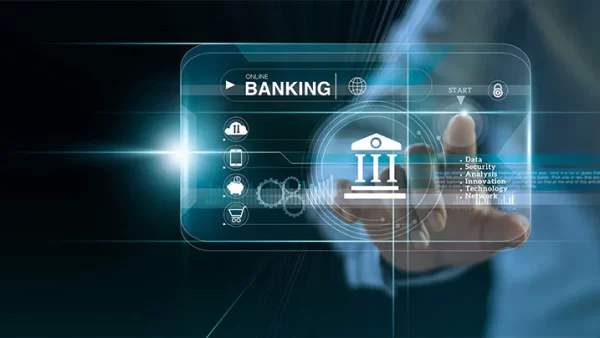The Future of Banking: Exploring the New Frontiers of Financial Innovation
1. Virtual Banks: The Era of Digital-Only Banking
Virtual banks, or digital-only banks, are revolutionizing the banking landscape by eliminating physical branches and focusing solely on online operations. These digital-first institutions offer streamlined, user-centric experiences with features like lower fees, instant transactions, and enhanced mobile capabilities. As technology progresses, expect these banks to leverage AI to deliver customized financial advice, predictive spending tools, and state-of-the-art security measures, catering to the ever-growing demand for convenience and efficiency.
2. AI and Machine Learning: Transforming Banking Operations
Artificial Intelligence (AI) and Machine Learning (ML) are set to transform banking by automating routine tasks, enhancing customer support, and refining risk management. AI-powered chatbots and virtual assistants are already handling a variety of tasks around the clock, from answering queries to executing transactions. Looking forward, AI and ML will further enhance fraud detection, credit evaluation, and personalized financial recommendations, enabling banks to offer more responsive and secure services.
3. Blockchain and DeFi: Redefining Transactions
Blockchain technology, with its secure and transparent ledger, is poised to revolutionize banking practices. It promises to enhance cross-border payments, facilitate smart contracts, and streamline regulatory compliance. Decentralized Finance (DeFi), a subset of blockchain technology, is also gaining traction by providing decentralized alternatives to traditional financial services. DeFi platforms offer everything from lending to asset management, eliminating intermediaries and potentially lowering costs while increasing financial inclusion.
4. Tailored Banking: Crafting Personalized Financial Solutions
Personalization is becoming a cornerstone of the future banking experience. With advancements in data analytics and AI, banks will be able to deliver highly personalized services, from custom investment strategies to bespoke savings plans. By analyzing individual financial behaviors and preferences, banks can provide tailored advice and products, enhancing customer satisfaction and fostering stronger relationships.
5. Sustainable and Ethical Banking: Aligning with Values
As societal focus shifts toward sustainability, banks are responding by emphasizing ethical practices and environmental responsibility. The future of banking will likely feature a greater emphasis on green finance, with banks investing in eco-friendly projects and offering products that support sustainability goals. Transparency in investments and alignment with ethical values will become crucial, as customers increasingly seek banks that reflect their own values and contribute positively to the world.

6. Advanced Security: Protecting Financial Data
As digital banking and new technologies advance, safeguarding security will be paramount. The future of banking will involve cutting-edge security measures, including biometric authentication, advanced encryption methods, and AI-driven threat detection. These innovations aim to protect sensitive customer data, thwart cyber threats, and ensure trust in the digital financial ecosystem.
7. Integrated Services: Merging Finance with Daily Life
The integration of financial services with other aspects of daily life is likely to become more prevalent. Banks may collaborate with tech companies and service providers to create a unified platform that offers a range of financial and lifestyle services. This could involve embedding banking features into popular apps, leveraging smart devices for financial management, and delivering a cohesive experience that simplifies both financial and personal needs.
At The End:
The future of banking is set to be marked by a blend of digital innovation, personalized experiences, and a focus on sustainability. As technology evolves, banks must adapt to new trends, address emerging challenges, and meet shifting customer expectations. By embracing these changes and prioritizing security, personalization, and ethical practices, the banking industry can navigate this transformative era and provide more efficient, secure, and meaningful financial services.
FAQs:
1. What are virtual banks, and how are they different from conventional banks?
Virtual banks, also known as digital-only banks, operate entirely online without any physical branches. They focus on delivering banking services through digital platforms, such as mobile apps and websites, offering advantages like lower fees and real-time transactions. Unlike traditional banks with physical locations, virtual banks are designed for a seamless online experience, utilizing modern technology to streamline financial services.
2. How will Artificial Intelligence (AI) and Machine Learning (ML) shape the future of banking?
AI and Machine Learning are poised to transform banking by automating routine tasks, enhancing customer support, and refining risk management. AI-powered systems will manage customer interactions, optimize fraud detection, improve credit assessments, and deliver personalized financial advice, making banking services more efficient, accurate, and responsive.
3. What is blockchain technology, and how could it impact the banking sector?
Blockchain is a decentralized digital ledger that records transactions across a distributed network of computers. In banking, blockchain can provide increased security, transparency, and efficiency in various processes such as international payments, smart contracts, and regulatory compliance. Its capability to create tamper-proof records can reduce fraud and streamline financial transactions.
4. What is Decentralized Finance (DeFi), and how does it differ from traditional financial systems?
Decentralized Finance (DeFi) uses blockchain technology to offer financial services without the need for traditional intermediaries like banks. DeFi platforms facilitate activities such as lending, borrowing, and asset management through decentralized networks, which can reduce costs and enhance accessibility compared to conventional financial institutions.
5. How will personalized banking experiences evolve in the future?
The future of personalized banking will be driven by advanced data analytics and AI, allowing banks to tailor financial services to individual preferences. By leveraging detailed customer data, banks will offer customized investment plans, savings strategies, and financial advice, providing a more relevant and engaging experience for users.
6. How will sustainability influence future banking practices?
Sustainability will increasingly play a central role in banking, with a focus on green finance and ethical investment strategies. Banks will prioritize funding for environmentally friendly projects and ensure greater transparency regarding their investment practices, aligning with customer values and promoting positive environmental and social outcomes.
7. What advancements in security can we expect in the future of banking?
Future banking security will incorporate advanced technologies like biometric authentication, sophisticated encryption methods, and AI-enhanced fraud detection. These innovations aim to safeguard customer data, prevent cyber threats, and maintain a secure and trustworthy digital banking environment.
8. How will banking services integrate with other aspects of daily life?
Banking services are expected to become more integrated with everyday life through collaborations with technology and service providers. This could involve embedding financial functionalities into popular apps, utilizing smart devices for financial management, and creating a cohesive ecosystem that simplifies both financial and personal tasks.
9. What challenges might banks encounter as they adapt to these new trends?
Banks may face several challenges, including managing cybersecurity risks, adhering to evolving regulations, and addressing ethical issues related to data privacy and AI use. Adapting to rapid technological advancements and meeting shifting customer expectations will require careful planning and substantial investment.
10. How can consumers prepare for these changes in the banking industry?
To navigate the evolving banking landscape, consumers should stay informed about industry developments, explore new digital banking tools, and understand emerging technologies. Embracing innovative financial solutions, practicing good security habits, and leveraging personalized banking options will help individuals adapt to the future of banking.




